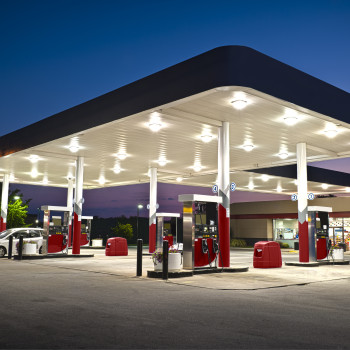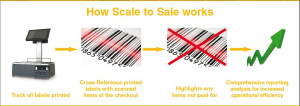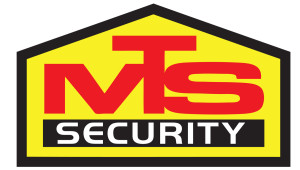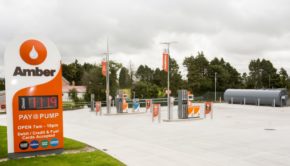Moving forecourts forward

Is there a retailer in Ireland who doesn’t want to improve their bottom line? Technology providers reckon their solutions can do just that, so ShelfLife decided to find out exactly how their systems work and how this all-important goal can be achieved
12 December 2014
Thousands of transactions occur daily within forecourt and convenience stores, meaning that having the right technology which helps to streamline operations is essential. As always in the retailing industry, the bottom line is paramount. Innovative technologies now remove the need to scan through hours of video footage in the case of a theft or in-store incident. Sweet hearting and pilferage by staff members and shoppers can also be dramatically reduced, which can have a real impact on your profits. Many retailers believe a failure to invest in fit for purpose technology and continually evolve your store’s IT infrastructure, represents a false economy. Not only will your store not benefit from the cost saving benefits that forecourt technology solutions can deliver, but this strategy could ultimately lead to the need to pay out more for a completely new system in the future, if your current one becomes obsolete.
Point Four: Offering a range of retail, forecourt and multi-site solutions to capitalise on consumer opportunities
“Partnering with the right EPOS provider is key to providing customers with a seamless experience.”
As shoppers embrace digital channels to research and locate the best value, forecourt retailers must adopt new technology in order to capitalise on the opportunities presented by today’s digital consumer.
By 2016, 75% of the UK population will be using a smartphone with online sales predicted to become the fastest growing channel over the next five years.
Growth of self-service
Emerging technologies and developments in retail are supporting the growth of consumer-actioned solutions such as pre-paid fuel online, self-scanning, bagging and payment. Around the world shoppers are becoming increasingly familiar with self-checkouts, perceiving stores which offer self-service as providing a higher level of customer service.
Forecourts are encouraged to seek opportunities for cashless and compact self-checkout formats, modular solutions, pay towers with or without mobile self-scanning and automated tunnel scanning.
Right EPOS partner essential
In today’s highly competitive market, forecourts must differentiate themselves to attract and retain customers. Partnering with the right EPOS provider is key to providing customers with a seamless experience; whichever channel they choose to engage with you through.
Point Four is an omni-channel EPOS provider and software development house offering a range of retail, forecourt and multi-site solutions.
Standard functionality includes timesaving facilities, such as assisted ordering, supplier links and intelligent reporting, which maximise efficiency and reduce manual entry. The system highlights cost price changes, vital for maintaining margins and increasing bottom line performance.
Increasing customer spend and loyalty
Point Four Solutions are designed to increase customer spend and loyalty, with additional modules for contactless payments, cash handling, mobile applications, loyalty and reward schemes, integrated e-commerce and a range of self-checkout formats.
Point Four retailers benefit from a 360 degree view of stock across all channels, mobile performance notifications and the data to make informed business decisions from any location.
As the markets continue to progress, Point Four asks retailers to consider whether your current EPOS provider offers your business the flexibility and versatility to face the future?
CBE: Scale to Sale technology can help streamline forecourt operations
“Pilferage has been dramatically reduced in all cases and margins in turn have increased within the delis.”
Retailers are continuously looking for ways to improve efficiencies within their business. For forecourt retailers this involves ensuring that they maximise spend within the store along with sales on the forecourt.
CBE identified the deli area as a major area for forecourt retailers looking to streamline their operations with staff costs, wastage and shrinkage being the major areas for concern.

Seamus McHugh, CBE’s marketing manager says the new Scale to Sale technology has received a fantastic reaction from retailers
Improving operational efficiency
With this in mind, CBE’s innovation team have developed their unique Scale to Sale technology which allows retailers to tighten control on their deli operations. The Scale to Sale technology has been proven to increase security, improve operational efficiency and reduce wastage. It tracks all labels printed at the deli and cross references them against deli sales at the checkout. By doing this, it can:
- Identify and prevent theft and pilferage
- Provide a live snapshot of transactions in circulation
- Reduce scanning times at the checkout
- Provide a comprehensive reporting analysis
Pilferage dramatically reduced

Scale and Sale tracks all labels printed at the deli and cross references them against deli sales at the checkout
The new software has been installed in a number of forecourts throughout the country with fantastic feedback to date. Seamus McHugh, CBE’s marketing manager, commented: “The reaction from forecourt, convenience and supermarket retailers has been fantastic. Finally they have a solution to an age old problem of monitoring items that were prepared at the deli but not being paid for at the checkout. Pilferage has been dramatically reduced in all cases and margins in turn have increased within the delis. We at CBE believe that this new software solution will provide enormous benefit to all retailers that operate a deli.”
To find out more about CBE’s Scale to Sale technology call 1890 373000 or email info@cbe.ie.
MTS Security: Providing innovative retail loss prevention technology
“MTS Security’s loss prevention technology identifies non-scanning activities by applying advanced video and data analytics to the existing point of sales video and EPOS data streams.”
 “The retail environment has grown more complex with the emergence of new sales channels,” says Valerie Donnelly, Loss Prevention manager, MTS Security. Changing customer shopping and employee behaviours makes loss prevention an essential part of today’s complex retail value chain.”
“The retail environment has grown more complex with the emergence of new sales channels,” says Valerie Donnelly, Loss Prevention manager, MTS Security. Changing customer shopping and employee behaviours makes loss prevention an essential part of today’s complex retail value chain.”
Retail’s greatest area of exposure to loss every day is at the point of sale. The centre for retail research show up to 35% of loss occurs in this area. Achievable, measurable reductions in these losses will impact upon profit margins in a positive manner. MTS, the exclusive partner and distributor of Everseen’s technology across Ireland, is leading the way in making these loss reductions a reality to retailers across the country through a new and innovative non-scanning at point of sale detection solution.
Delivering next day exception reports
The company’s loss prevention technology identifies non-scanning activities by applying advanced video and data analytics to the existing point of sales video and EPOS data streams, providing next day exception reports without the need for on-site spot-checks, manually reviewing till reports or hours of CCTV footage reviews.
At the system’s core is a set of powerful algorithms and video analytic tools, built to identify the different events that can occur at point of sale/EPOS resulting in non-scans, irregular voiding, refunding, discounting, sweet hearting and other process breaches contributing to losses.
When a non-scanning event or irregularity occurs, the technology identifies the anomaly and publishes the incident via MTS Security’s user-friendly web portal.
The systemidentifies, validates and reports on:
- Non-scanning
- Over and under charging
- Irregular voiding
- Irregular refunds
- Basket and trolley based losses
Moving away from random testing
This solution allows the retailer to make rapid, operational impact and cultural changes and reduces errors and bad habits by the identification of both training needs and process gap analysis.
The system is an invaluable employee management system and staff training aid, moving away from time-consuming random testing to a pure events driven strategy to deliver a reduction in ‘sweet hearting’ and staff related incidents.
Installation is simple. It involves the installation of a single data collection unit which receives data streams from your CCTV system and EPOS/tills. This data collection unit is connected to the internet. The on-board analytics and cloud based validation service does the rest. With a secure log-in to the client portal, the retailer can view all incidents on a daily basis from anywhere over the Internet on mobile, tablet or desktops.
Experienced installation engineers
Installing the technology in-store is carried out by MTS Security’s team of experienced installation engineers, assisted by technical and administrative support staff in the background. The group’s dedicated engineers are managed by its 24 hour service desk for scheduling callouts and handling your needs. Everseen’s loss prevention technology can be applied across various industry sectors, grocery, fashion, DIY, department store, pharmacy, off-licenses, forecourts, etc.
If you would like a confidential consultation and demonstration of MTS Security’s loss prevention technology, call Valerie Donnelly, sales manager – Loss Prevention, directly on 087 9572546.
MTS Security
12-12A Belvedere Court
Off Belvedere Place, Dublin 1
Tel: 0818 365538 / +353 18365538
Mob: + 353 (087) 9582546 (Valerie Donnelly)
Fax: 0818 365823 / +353 18365823
Email: valeriedonnelly@mtssecurity.ie
Web: www.mtssecurity.ie
CASE STUDY
Londis‘ Chris Donnelly explains how the group uses iBeacon technology to scientifically understand the dynamics of queuing and consumer dwell time, and interaction with customers during their shopping experience in real time
“Ongoing IT investment is extremely important for any business and particularly in retail, where so many of the activities which support the eventual sale are dependent on the existence of a suitable and effective IT infrastructure.”
Technology has changed the face of forecourt retailing and investment in technology must continue if the consumer experience is to be truly enhanced.
In one particular Londis forecourt site which upgraded its systems in 2014 and which has three tills, a network scan revealed a total of 72 connected devices! Ranging from pumps to car wash, deli scales to HACCP terminals, EPOS to cameras, this shop is now alive with technology which in itself puts pressure on the infrastructure and what was fit for purpose even five years ago, may no longer be adequate. There are many examples of businesses which have failed to invest over time in their IT infrastructure as recent failures in the banking sector have highlighted. Such customer service failures highlight how debilitating this underinvestment can be to a business. Ongoing IT investment is extremely important for any business and particularly in retail, where so many of the activities which support the eventual sale are dependent on the existence of a suitable and effective IT infrastructure. And given the changes that we have seen in the past few years, it’s important that this infrastructure, which is in effect the foundation on which the entire business now depends, is supportable and expandable.
Understanding shopper dynamics
With thousands of daily transactions and increasing footfall, coupled with limited and highly valuable “forecourt real estate”, the faster customers are served and cars moved off the premises, the better for all customers. To do this we need to scientifically understand the dynamics of queuing and consumer dwell time. The technology which will deliver this critical data is based on the iBeacon, a low power usage Bluetooth device which adds an entirely new dimension to the customer engagement process. Whilst a traditional loyalty programme lets us know what has happened at the end of the customer’s shopping experience and provides us with information to help attract them back, iBeacons will allow us to interact with the customer during the current shopping experience. This could fundamentally change how we can meet our customers’ expectations in real time. Similar to how a browser knows every element of the online consumer’s journey, we will now know the same in-store!
This level of real time data will allow us to upsell meaningfully. For example, we can prompt for complimentary products such as the scenario when a regular loyalty customer who always buys a litre of milk has walked past the dairy cabinet and is queueing at the till, we can gently ask them if they have forgotten their normal milk.
Using consumer data responsibly
We can see and quantify busy periods, not just at the till, but at the deli counter, at the coffee dock and at the chill cabinet, allowing us to better understand the pressure points and times. We will see the areas of the shop that are not attracting footfall, the high footfall areas and the average dwell time.
iBeacons and the associated apps and data will fundamentally change how we operate our forecourts and convenience stores into the future, but this must always be done with consumer consent and to recall the words of Clive Humby (founder of dunnhumby) at the FutuRetail Event in Google’s London office last February, when it comes to data: ”Don’t be creepy!” Consumers will only respond well to personalised marketing if data is used correctly and responsibly.



 Print
Print





Fans 0
Followers